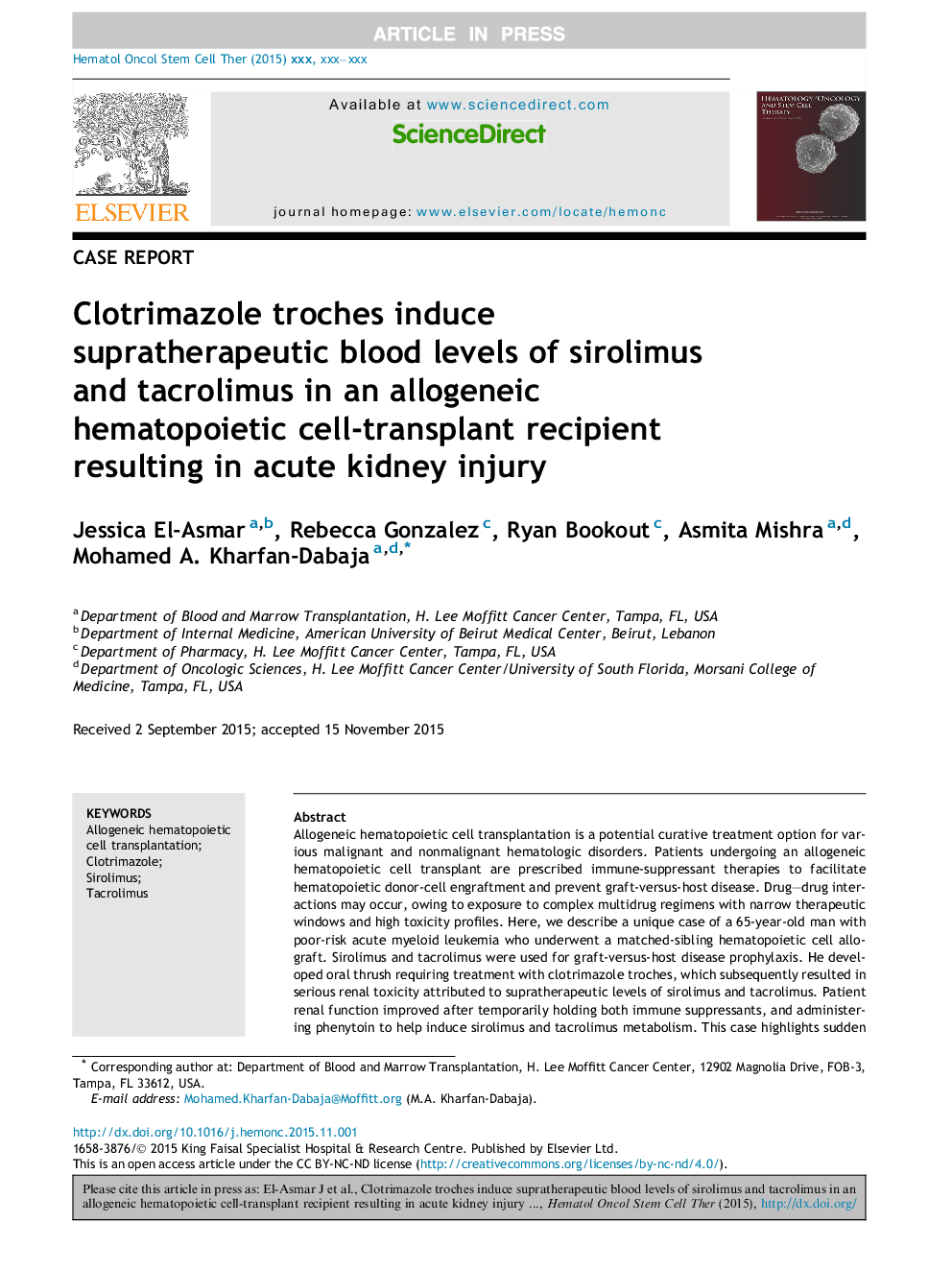| Article ID | Journal | Published Year | Pages | File Type |
|---|---|---|---|---|
| 8453077 | Hematology/Oncology and Stem Cell Therapy | 2016 | 5 Pages |
Abstract
Allogeneic hematopoietic cell transplantation is a potential curative treatment option for various malignant and nonmalignant hematologic disorders. Patients undergoing an allogeneic hematopoietic cell transplant are prescribed immune-suppressant therapies to facilitate hematopoietic donor-cell engraftment and prevent graft-versus-host disease. Drug-drug interactions may occur, owing to exposure to complex multidrug regimens with narrow therapeutic windows and high toxicity profiles. Here, we describe a unique case of a 65-year-old man with poor-risk acute myeloid leukemia who underwent a matched-sibling hematopoietic cell allograft. Sirolimus and tacrolimus were used for graft-versus-host disease prophylaxis. He developed oral thrush requiring treatment with clotrimazole troches, which subsequently resulted in serious renal toxicity attributed to supratherapeutic levels of sirolimus and tacrolimus. Patient renal function improved after temporarily holding both immune suppressants, and administering phenytoin to help induce sirolimus and tacrolimus metabolism. This case highlights sudden and serious toxicities that resulted from clotrimazole-sirolimus and clotrimazole-tacrolimus drug-drug interactions, even when administered topically.
Related Topics
Life Sciences
Biochemistry, Genetics and Molecular Biology
Cancer Research
Authors
Jessica El-Asmar, Rebecca Gonzalez, Ryan Bookout, Asmita Mishra, Mohamed A. Kharfan-Dabaja,
